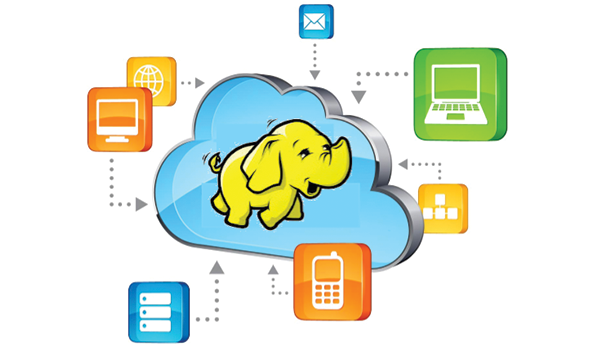The Java based and open source programming framework, Hadoop is extensively used in a distributed computing environment for supporting storage as well as processing of huge data sets. It is one of the highly respected tools for utilization, management, and analysis of Big Data. Hadoop empowers organizations to make the most of even extremely complex data sets and initiatives.
Many organizations are able to exploit Hadoop’s amazing attributes including scalability and flexibility for building high value products by accessing only the basic package without incurring huge expenses.
Large scale versatility and fascinating array of applications have lead to perplexity as to the use of Hadoop in cloud or in an onsite environment. There are four basic considerations that need to be taken into account before deciding whether to use Hadoop in cloud or otherwise.

Security concerns
Vulnerability of cloud to hacks and security breaches has come to light especially because of breach of iCloud from apple. It is now a well established fact that no organization, irrespective of its status, is completely immune to hacking attempts. The same argument can be extrapolated to state that the Hadoop employed data is also prone to cyber attacks if the same is stored in cloud.
This does not imply that the data in cloud is far from being safe and secure. Thanks to the amazing advancements in cyber security related technologies, there is a consistent development of security systems to stay one step ahead of these hackers.
In terms of numbers, there has been more number of thwarted attacks than number of successful hacks. Security breach of iCloud is attributed to a weak password and not to susceptibility of security systems against hackers.
Cloud as an environment for data storage is not to be blamed for lack of data security. Rather the issue of security is related more to the point of connectivity during data download and upload. The transit period between the cloud source and the destination is vulnerable to attacks.
Hence we can safely confirm that the implementation of data on-site is far more secure while the data is being used within the seamless boundaries of the system itself. In essence, you can completely prevent chances of a hacking attempt by defining and controlling access to the internal database.
This means that the accountability of security of the data remains entirely with the internal IT teams leading to more complex and cost intensive security system upgrades.
Judgment- On-site solution are far more secure than cloud, provided the implementation of Hadoop is executed within a closed network rather than harnessing in-cloud environment for the implementation. Security cannot be assured if an open system is being leveraged for Hadoop implementation.
Cost factor
In-premise- Onsite implementation of Hadoop is clearly more cost intensive than in-cloud option. This is because of excessive allocation of resources for acquiring an array of servers for data storage. These servers need to have compatibility of processing power with prerequisites for effective handling of queries. Additional IT manpower may be needed for efficient management of complex servers.
Add to this the huge costs needed for purchasing high end equipment for system upgrades and cost for acquiring additional space for positioning that additional equipment and associated cost for implementation of security measures.
In-cloud- There are no additional costs for in-cloud implementation of Hadoop apart from the monthly subscription fees that depend upon usage needs. These are directly proportional to consumption of system resources.
The payment approach also facilitates ease of scalability since user needs to go on purchasing higher packages to add to the existing resources without need to make huge investments to accommodate growing needs. It is also possible to down scale by opting out of the higher plans.
Judgment- Cloud based Hadoop implementation is not only cheaper but also more scalable than on-site approach.
Practicality of implantation
Ease of access from any location is one of the most important features of in-cloud Hadoop implementation. Companies can operate data from any location via Internet connectivity for accessing progress, checking reports, or assessing work. This option also supersedes on-site implementation of Hadoop in terms of flexibility of operations.
If you are looking forward to remotely administer databases, then there is no option to cloud based implementation of Hadoop. On-site use of Hadoop does not permit remote access due to rigid measures of security and an attempt to achieve capability of remote access in on-site environment would not only be irrational but would also compromise security to significant extent.
Judgment- Cloud based systems offer freedom to work from any location
In conclude
Cloud has an edge over on-site Hadoop implementation. Use of Hadoop is clearly a better choice, although the other option has its own place in terms of implementation of robust security measures. It should be noted that on-premise Hadoop is an expensive proposition due to high costs of system upgrades and maintenance.
On-premise implementation continues to emerge as an ideal choice for organizations that need to implement serious security measures due to presence of classified data that is highly prone to cyber attacks.
Go4hosting is leading Hadoop Service provider in India; helps you in hosting your hadoop application on Cloud Servers. Mail us your queries at [email protected]






 Live Chat
Live Chat